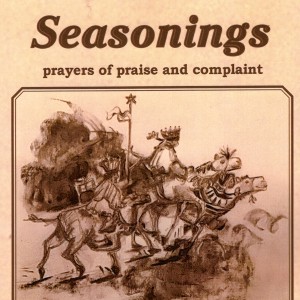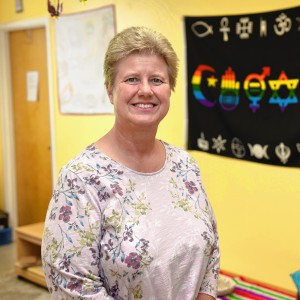Finding ‘priceless’ company: Bonds between horses and humans benefit both
| Published: 07-03-2023 11:56 AM |
Stoney B Acres in Bernardston is the site of hard work and dedication, as well as a place of love and magic. Val Deane’s family ran the business for decades; these days, others help Deane keep the place going strong.
Hailey Stebbins, Stoney B’s barn manager, first came for riding lessons at age 4. The South Deerfield native attended the University of Findlay, an equestrian college in Ohio, and now helps manage Stoney B’s farm filled with horses, chores and dreams come true.
Jared Sedgely, who handles maintenance, also has deep roots at Stoney B, where he rode horses during his teens. A staff member since 2018, Sedgely bales hay, mows, keeps ticks down, attends to two ponds and maintains beautification, for starters.
“There’s always lots to do,” he said. Gesturing to a lovely barn, he added, “I painted that recently. That was a job!”
Joanne Brown works part-time at Stoney B, takes beautiful photos around the place, and boards her horse, Leo, there. Another familiar face is Debbie Gordon, president of and an instructor for Courageous Strides, a program that brings together horses and people with physical and emotional challenges, including veterans. The organization’s website describes their mission as providing “equine-assisted therapeutic riding programs to individuals with special needs in order to promote healing, health and happiness through the use of the horse.”
Ann McCarthy can attest to the benefits of human-horse bonds. Having spent years on the road as an art supply distributor, McCarthy now works from her Greenfield home doing tech support for an art manufacturer. She appreciates the decreased mileage, but most of all, McCarthy loves that working locally allows her to devote herself to Smoky.
Article continues after...
Yesterday's Most Read Articles
 Charlemont planners approve special permit for Hinata Mountainside Resort
Charlemont planners approve special permit for Hinata Mountainside Resort
 $338K fraud drains town coffers in Orange
$338K fraud drains town coffers in Orange
 Greenfield residents allege sound and odor issues from candle, cannabis businesses
Greenfield residents allege sound and odor issues from candle, cannabis businesses
 Fire at Rainbow Motel in Whately leaves 17 without a home
Fire at Rainbow Motel in Whately leaves 17 without a home
 Hotfire Bar and Grill to open Memorial Day weekend in Shelburne Falls
Hotfire Bar and Grill to open Memorial Day weekend in Shelburne Falls
 Mohawk Trail’s Chay Mojallali sets school record in high jump as Franklin County contingent racks up titles at Western Mass. Division 2 Track & Field Championships (PHOTOS)
Mohawk Trail’s Chay Mojallali sets school record in high jump as Franklin County contingent racks up titles at Western Mass. Division 2 Track & Field Championships (PHOTOS)
Smoky, a handsome bay horse (brown with a black mane and tail), appears to live happily in two places: physically at Stoney B Acres, but also spiritually and emotionally at the center of McCarthy’s heart.
“There seem to be mystical bonds between women and horses,” McCarthy said. “We connect deeply.”
McCarthy began riding lessons in the mid-1990s. Before long, she leased a horse and later purchased one.
“I find horses magical and incredibly healing to be around,” McCarthy said. “They live totally in the moment.”
The bond between McCarthy and Smoky, a thoroughbred-quarter horse mix, might not have taken root had it not been for unusual circumstances. McCarthy previously owned a different horse, but a 2012 accident shook her confidence. In her haste to tack up to go on a trail ride with a friend, McCarthy didn’t secure the girth properly — the part that secures the saddle to the horse’s back. When the saddle slipped, McCarthy went down.
Following a helicopter ride to the hospital, McCarthy was treated for a concussion and bruises. Later, she couldn’t shake the feeling that things had changed.
“Although it wasn’t the horse’s fault, I never regained full trust, and by 2015 decided I wanted to start over with a different horse.” McCarthy was grateful that the barn owner was willing to keep the animal. “Fortunately, I didn’t have to worry about the horse having to leave his home through no fault of his own.”
Around the same time, McCarthy lost a dear friend to leukemia.
“I couldn’t save my friend,” she said, “so I figured maybe I could save a horse.”
She sought a smaller horse for trail riding, but ultimately chose Smoky, even though he didn’t fit the description.
“Smoky was nothing I was looking for,” she said, “but he was so sweet, with a kind eye and lovely disposition.”
Smoky was very skinny, with ribs clearly visible, and in need of a good home. Putting weight and muscle on Smoky was a priority. Based on his teeth, she said, Smoky looks to be around 21 years old, “in the senior category.” But in general, his health remained good until the spring of 2020, when he developed hives all over his body.
Steroids had to be administered twice daily. Up to that time, McCarthy rode only on weekends and depended on helpers to provide basic horse care. “Suddenly, I had to find a way to prepare and administer meds twice a day.” McCarthy crushed pills, mixed them with a skin and allergy supplement, disguised the remedy in applesauce to make it palatable and administered it with an oral syringe. This continued for two years until a different vet suggested she try Zyrtec, a common antihistamine that McCarthy herself uses.
The results seemed miraculous. “The antihistamine prevents hives without the damaging side effects of steroids, although it still has to be given twice a day.” And while the hives problem was solved, Smoky developed a number of conditions common to senior horses, including arthritis. “I added joint and hoof supplements,” said McCarthy, “and an arthritis medication designed for horses. I give Smoky spirulina to try to improve his respiratory function, since he tends to cough while exercising.”
Although McCarthy’s life with Smoky involves a great deal of time and effort — including getting him to take medication via apple slices with slits cut into them so she can hide pills — she approaches each task with patience and understanding. McCarthy feels she receives as much or more from Smoky than she gives: “Our story is both about his journey back to health, and how our bond has developed over time.”
A brief tour of Stoney B Acres reveals glimpses of an expansive place populated by mares and geldings (males who’ve been neutered). Barns, stalls, tack rooms and other spaces for animals and supplies are neatly laid out.
When McCarthy finishes attending to Smoky’s medical and nutritional needs, it’s time to groom him, tack him up, and take him to the arena for exercise and fun. Speaking to Smoky tenderly all the while, McCarthy moves on with her tasks, pausing to stroke rows of tiny ponytails that make up his mane on that particular day. She explained that, beyond obvious affection, there’s an important reason to keep touching a horse while working with the animal: “Horses can’t see directly in front of or behind them, so it’s important to let them know where you are.”
Exercise areas for horses are called rings or arenas. Stoney B Acres has three, including an indoor arena where McCarthy works with Smoky most often, plus a large outdoor arena and a smaller outdoor arena called the trail ring, with various items in it to mimic what one might encounter on a trail ride: logs to walk over, a small wooden deck for a horse to stand on, and a gate set-up so horses can learn to position themselves so their humans can open and close a gate.
McCarthy said it’s crucial to provide Smoky with opportunities to keep moving in a variety of ways. “First, we walk to warm up his muscles, then we trot, which is a two-beat gait, and his least favorite,” she said. “Then comes loping, which is a three-beat gait.” McCarthy takes Smoky through a carefully orchestrated series of moves, while maintaining knowledgeable commentary laden with equestrian facts, including the differences between English and Western styles.
McCarthy says time spent caring for Smoky has yielded a silver lining.
“What I’ve learned over the years of caring for him is that spending time with your horse results in a much richer and closer bond than you can achieve in just weekend visits,” she said. “Smoky and I have grown into a relationship that I wouldn’t have imagined was possible.”
McCarthy admits that hers is an expensive hobby, but notes: “Horses are capable of giving us so much joy and healing. In that way, their company is priceless.”
Eveline MacDougall is the author of “Fiery Hope” and an artist, musician and mother. Email contact: eveline@amandlachorus.org.

 Speaking of Nature: Indulging in eye candy: Finally, after such a long wait, it’s beginning to look like spring is here
Speaking of Nature: Indulging in eye candy: Finally, after such a long wait, it’s beginning to look like spring is here Celebrating ‘Seasonings’: New book by veteran preacher and poet, Allen ‘Mick’ Comstock
Celebrating ‘Seasonings’: New book by veteran preacher and poet, Allen ‘Mick’ Comstock Faith Matters: How to still the muddy waters of overthinking: Clarity, peace and God can be found in the quiet spaces
Faith Matters: How to still the muddy waters of overthinking: Clarity, peace and God can be found in the quiet spaces A time for every purpose under heaven: Free sing-a-long Pete Seeger Fest returns to Ashfield, April 6
A time for every purpose under heaven: Free sing-a-long Pete Seeger Fest returns to Ashfield, April 6
